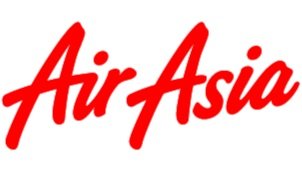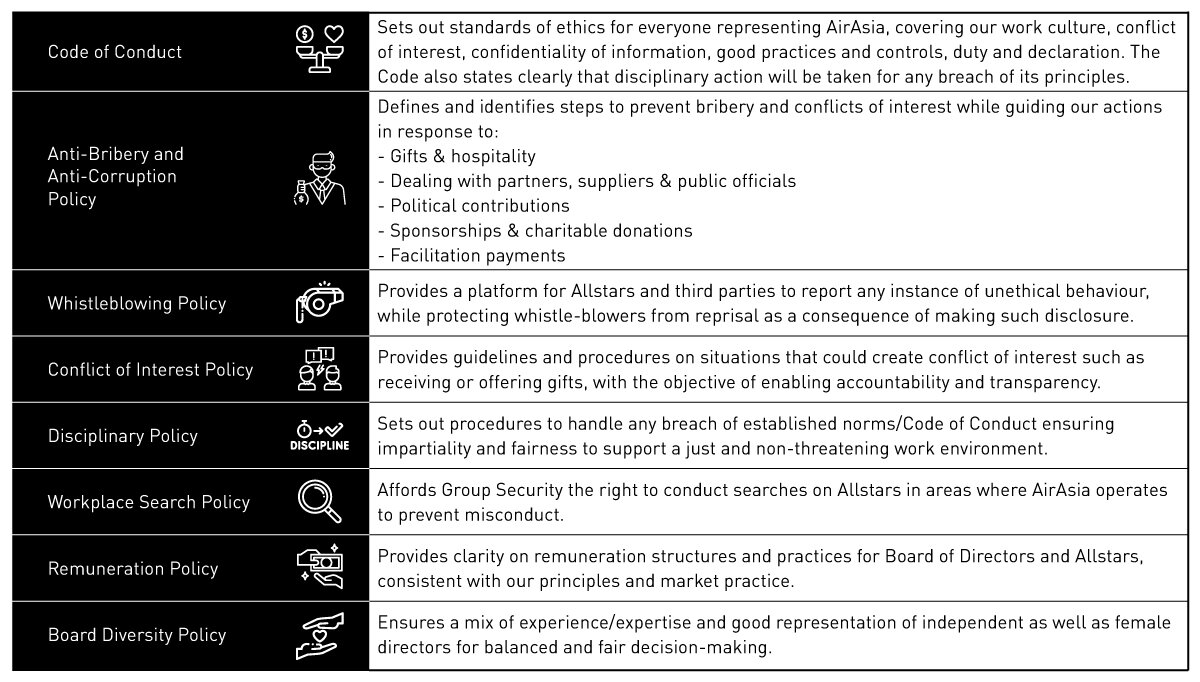CORPORATE GOVERNANCE & CONDUCT
The trust of our stakeholders is critical to our sustainability and we seek to inspire confidence in our ability to deliver ethical as well as transparent operations. Our Board of Directors ensures that we serve our stakeholders’ interests via sound principles of governance as advocated by domestic and international regulators.
Various policies and procedures are in place to create a culture of integrity that permeates all our actions and decisions.
These are reflected in the table below:
In 2020, we carried out thorough investigations on all unethical/non-compliance cases that were reported before proceeding with the appropriate action.
Anti Bribery & Anti-Corruption
In response to the amendment of Section 17A of the Malaysian Anti-Corruption Commission (MACC) Act 2009, our Risk Management Department engaged an external consultant to conduct an analysis of bribery or corruption-related risks faced by the Group. The consultant’s report highlighted 21 gaps and the areas for improvement which were progressively addressed throughout 2020.
The Group’s stance on bribery or corruption is clearly reflected in the Board of Directors’ zero tolerance for any form of bribery or corruption in AirAsia.
This is further reinforced by our Anti-Bribery & Corruption (ABAC) Policy, which all Allstars as well as vendors, suppliers and consultants are required to read and acknowledge.
Communication and Training
Since 2018, all new hires are required to attend online and offline Code of Conduct training. The ABAC Policy was added into AirAsia’s Workday system which pushes notifications to each individual Allstar.
In 2021, we will also translate the policy into Bahasa Malaysia, Bahasa Indonesia, Thai and Tagalog for ease of understanding of Allstars Group-wide.
Whistleblowing
We encourage Allstars, Directors and other stakeholders who have genuine and legitimate concerns to raise these via our whistleblowing channels. Their concerns will be investigated properly while we ensure no negative repercussions on the whistleblowers.
Strategy Development
Our business sustainability is also dependent on having effective strategies guiding our growth. This is the domain of our Strategy & Growth Department, which works with various key stakeholders to develop the Group’s Redbook.
This Redbook establishes a clear direction and standardised structure, methodology and process to develop strategies, targets, budgets and KPI’s for each function within the Group.
Driving a CEKAP Workforce
To drive continuous operational efficiencies, in 2019, we implemented CEKAP which equips Allstars with Continuous Improvement Tools to drive simple yet efficient ways of working across the Group.
The slowdown in 2020 created an opportunity to onboard more Allstars onto the CEKAP platform. From having trained 300 Allstars in 2019, the number increased to over 2,100 as of December 2020.
Risk & Crisis Management
One of the the Risk Management Department’s priorities in 2020 was to reintroduce the use of the Red Radar system to collate previously manual risk registers.
To date, 90% of data from manual risk registers have been exported onto Red Radar, which provides for AirAsia Group’s Business Continuity Plan (BCP).
The BCP registers the people, processes and critical systems related to risk management in every department, and identifies the potential risks caused by failure of any of the risk compliance areas.
For full details and the complete AirAsia Sustainability Report 2020, click here.




